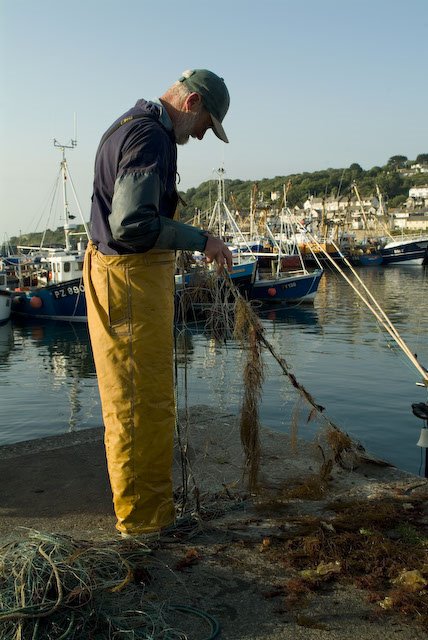Drift Net Ban “a Throwback to the Unreformed CFP?”
Prompted by a post from Ex-EU fisheries leader Maria Damanki:
NO MORE DRIFTNETS IN OUR WATERS
Tags: bycatch, CFP, common fisheries policy, driftnet, Environment, EU,fishing, reform, sustainability
The NFFO asks: What is the European Commission doing, proposing a blanket ban on drift net fisheries?
NO MORE DRIFTNETS IN OUR WATERS
Driftnets are a harmful practiceDriftnet fishing – with vertical nets – is an irresponsible practice. It is a non-selective fishery which leads to non-targeted catches. It threatens marine wildlife and species which are protected under EU legislation. Tolerating this practice comes in contradiction with our newly reformed Common Fisheries Policy.
One of the core principles of our Reform is to reduce the pressure of fishing activities on marine ecosystems. This is a key value that we promote also in our international agreements. It is important that we remain coherent and ensure such prohibited and destructive practices are not taking place in the EU anymore. We need to lead by example on sustainability. This is why, after extensive consultations, I proposed this week a ban on the use of driftnets in European waters.
Why a total ban? Because up to now, there were numerous exemptions in the existing prohibition, generating loopholes. Only a total ban will leave no room for ambivalent interpretation. This was the last missing piece of the puzzle of our reform of the Common Fisheries Policy. I hope that we can complete this puzzle by the end of this year and have no more driftnets in our waters by January 2015.
Tags: bycatch, CFP, common fisheries policy, driftnet, Environment, EU,fishing, reform, sustainability
The NFFO asks: What is the European Commission doing, proposing a blanket ban on drift net fisheries?
A new CFP was agreed in June of last year and at the heart of the reform was the scope for regional management. Technical conservation is exactly one of the policy areas earmarked for this new decentralised approach. This change was introduced against widespread criticism that EU blanket measures had been too blunt and crude, often failing to solve the original issue, whilst creating a myriad of new problems elsewhere. Now the Commission has come forward with a proposal for a blanket ban on drift nets that is going to repeat exactly those flaws.
It is as though the reform hadn’t taken place.
For the record, there are many, unobtrusive, small-scale, drift-net fisheries around the coast of England, and other member states, for species like herring, mackerel, sprat, bass, salmon, mullet and other non-TAC species. They provide a crucial component in the annual income of many inshore fishermen. When research has been done using on-board observers, there has been no evidence of any significant bycatch issue associated with these fisheries. This is not surprising, given that the boat is usually in close attendance to the nets as they fish.
Is the Commission completely unaware how badly this kind of brutal measure reflects on Europe? Proposing a blanket EU ban, to solve a perceived problem in some drift net fisheries in the Mediterranean, is a throwback to what was precisely wrong with the pre-reform CFP. If specific bycatch problems do arise with any particular local drift-net fisheries, we have the means at local, national and now at regional levels, to deal with them. What we don’t need is an EU bulldozer approach that destroys fishermen’s livelihoods for no good reason.
We expect Defra to give us full support in opposing this blunt and regressive legislation.
Full story courtesy of the NFFO.
Full story courtesy of the NFFO.

